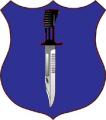Victory in such combat has classically gone to the commander who concentrates (and applies) superior combat power at the point and time of decision. We know, but sometimes forget, that there are two dimensions to concentration and two methods involved:
* Concentration of forces in space via maneuver.
* Concentration of actions in time via synchronization.
This article's premise is that proper doctrine must seek both goals and employ both methods in ajudicious mix and that synchronization embraces a widening range of complex but essential functions.
Lest this issue seem overdrawn, there are a number of very bright and influential young field grade officers who have contributed much to maneuver doctrine, who by their talent will remain influential in doctrinal matters throughout their careers and who are genuinely worried about what they perceive as a mutually exclusive relationship between maneuver and synchronization. The argument goes that synchronization smacks of set-piece warfare-a Montgomery perhaps, compared with a Rommel or a Patton. And if synchronization, therefore, means stopping the war for time-consuming, deliberate arrangements for every battle, then it will nullify the enormous benefits that otherwise would flow from rapid and bold maneuver.
This is not a trivial issue. Perhaps the logic trap is in moving the discussion to the outer boundaries of each concept. One could visualize an army strangled and immobilized by its internal procedures for synchronization, every battle a Normandy landing or an El Alamein. Correspondingly, an army devoted to an endless bloodless ballet does not inspire much
confidence.
But extremes prove very little. Common sense tells us to move toward the center, to synthesize the virtues of each in a higher order of competence and professionalism-an Hegelian dialectic if you will. The remainder of this article, therefore, centers on synchronization with the goal of bringing that process up to a level of equal prominence with maneuver in doctrinal thinking throughout the Army.
This is not an argument against maneuver doctrine. It accepts the primacy of maneuver as all supporting actions must be keyed to maneuver. The scheme of maneuver (concept of operation) is the first and great requirement. The second, which is like unto it, is synchronization.
The history of war is replete with examples in which superior forces were concentrated for battles which were then lost to smaller but better-handled opponents.
Gen. Sir Bernard L. Montgomery's predecessors in North Africa, with the notable exception of the unsung Gen. Sir Richard N. O'Connor, regularly assembled forces larger and potentially stronger than the Germans, and just as regularly were defeated. At Gazala, Field Marshal Erwin Rommel maneuvered himself into the rear of the British and into what the Germans themselves described as the witches cauldron. With the British commander, Gen. Sir Neil M. Ritchie in the rear, the Eighth Army never made a concerted and decisive move against the trapped Panzer Army. Individual British (Indian and New Zealand) brigades engaged the Germans as the spirit seized their various commanders or as they were forced to fight for survival. But Gen. Ritchie probably never generated, at any one time, more than ten to 20 percent of his army's latent power.
Gen. Rommel, on the other hand, was actively present in the "cauldron" with his troops. He, personally, brought up his supply and ammunition trains, had a path cut back through the British mine field as a direct resupply route, issued orders to his force, routed the Eighth Army and went on to the Egyptian border-capturing Tobruk on the way. He synchronized the actions of his smaller force and developed more intensive combat power at the critical time.
It is interesting to note that the deep enveloping maneuver of the Germans did not stampede the phlegmatic British. The mere presence of the whole Panzer Army in the British rear was not enough. Only when Gen. Rommel delivered a well-coordinated attack did the defense collapse. The psychological effects of maneuver can be overstated. British phlegm may have its counterpart in a Soviet command which is less than skittish.
Finally, on this point, the French have a marvelously descriptive term for the tactics of a force so powerful and confident that it ignored the movements of the enemy and simply marched straight to its objective-"a maneuver of scorn."










 ). Lastly, I trained or helped others train for most of 45 years to fight a land war in Europe -- never even got stationed much less fought there-- but I sure have eaten a whole lot of rice. The point there being we do not know where, when or who we will fight -- why is immaterial, how will change...
). Lastly, I trained or helped others train for most of 45 years to fight a land war in Europe -- never even got stationed much less fought there-- but I sure have eaten a whole lot of rice. The point there being we do not know where, when or who we will fight -- why is immaterial, how will change...






Bookmarks